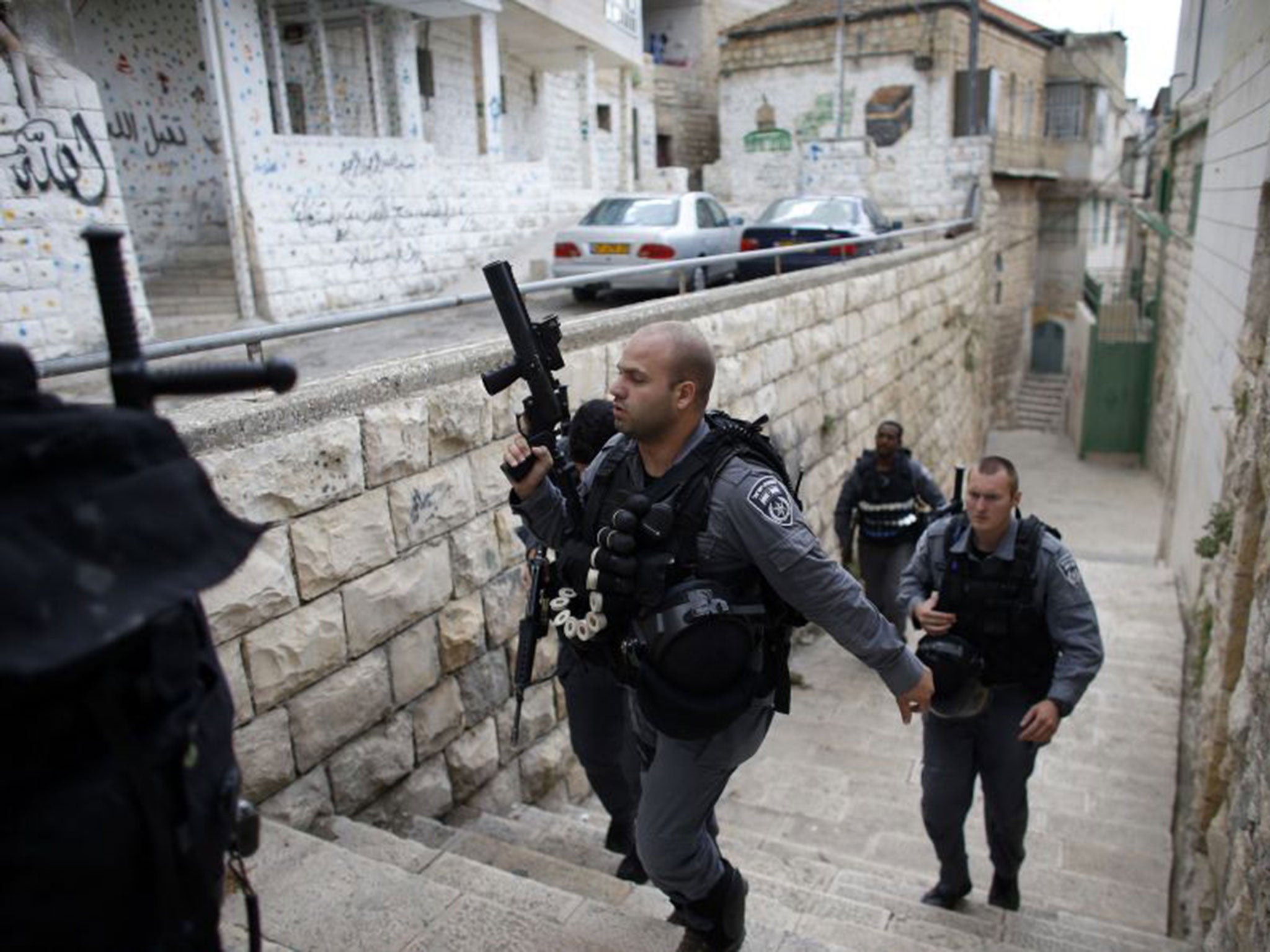Israeli settlers criticised for overnight move into hotly disputed East Jerusalem
Jewish families and religious studies students will soon move into two newly bought properties, doubling the Jewish presence in that section of Silwan

Your support helps us to tell the story
From reproductive rights to climate change to Big Tech, The Independent is on the ground when the story is developing. Whether it's investigating the financials of Elon Musk's pro-Trump PAC or producing our latest documentary, 'The A Word', which shines a light on the American women fighting for reproductive rights, we know how important it is to parse out the facts from the messaging.
At such a critical moment in US history, we need reporters on the ground. Your donation allows us to keep sending journalists to speak to both sides of the story.
The Independent is trusted by Americans across the entire political spectrum. And unlike many other quality news outlets, we choose not to lock Americans out of our reporting and analysis with paywalls. We believe quality journalism should be available to everyone, paid for by those who can afford it.
Your support makes all the difference.Israeli settlers have provoked criticism after moving overnight into a building in the hotly disputed area of East Jerusalem.
“We did it at night because there is less chance of friction with the Arabs,” said Daniel Luria, spokesman for the Ateret Cohanim organisation behind the move.
Ateret Cohanim, which settles Jews in Arab areas of East Jerusalem, said it facilitated the purchase of the two buildings from their Arab owners. Mr Luria said the buildings contain nine apartments and that Jewish families and religious studies students would soon move into the properties, immediately doubling the Jewish presence in that section of Silwan.
Last month Jewish settlers took over six properties in another area of Silwan, in the biggest settler acquisition in the neighbourhood since Jews began moving there two decades ago. The White House called the move a provocation, but the Israeli Prime Minister Benjamin Netanyahu said the settlement is just a question of Jews being able to buy property in Israel’s capital.
But in fact the government pays for the settlers’ security guards. Israeli President Reuven Rivlin criticised the way the homes were occupied, however. He is a supporter of Jews moving to the Arab area, but said Jerusalem cannot be a city “where sneaking into apartments is done in the cover of night”.
Israel captured East Jerusalem in 1967 and later annexed it, a move not recognised internationally. Palestinians claim East Jerusalem as their capital, while although Mr Netanyahu has rhetorically accepted a Palestinian state, he has also vowed that he will not divide Jerusalem.
Ahmed Qarain, a Palestinian resident of Silwan, voiced dismay. “There will be more clashes, more arrests,” he said. “Our life is going to be worse. They don’t want to see us here. They are dreaming every night to wake up and find it empty. It’s a danger for us and the world doesn’t do anything to stop them.”
But Mr Luria said it is the settlers who face Molotov cocktails. Arabs who object to any Jewish presence are free to relocate to Arab countries, he said. He added that yesterday’s move “rights a wrong” because British authorities evacuated the Jews in 1938 during the violence of the Arab revolt, bringing an end to a Yemenite Jewish community at the site since 1882. He terms the area of Silwan where settlers moved yesterday “the old Yemenite village”.
Abdullah Abdullah, a Palestinian legislator who supports President Mahmoud Abbas, condemned the settlement expansion. He said that if Jews could return to Silwan based on there being a Jewish presence there before 1938, then he should be allowed back to Katamon neighbourhood in a now entirely Jewish part of West Jerusalem where he was born that same year.
“The settlement expansion is a reflection of the determination of this government to destroy any chance for peace. We need action to show that Israel is not above the law and that it will have to pay a price for standing against the requirements of peace.” Earlier this month Mr Netanyahu backed the settlements in Silwan. “The idea we’d have ethnic purification as a condition for peace; I think it’s anti-peace,” he said. Tonight, his spokesman said: “I have nothing to add to what the Prime Minister has already said.”
Join our commenting forum
Join thought-provoking conversations, follow other Independent readers and see their replies
Comments